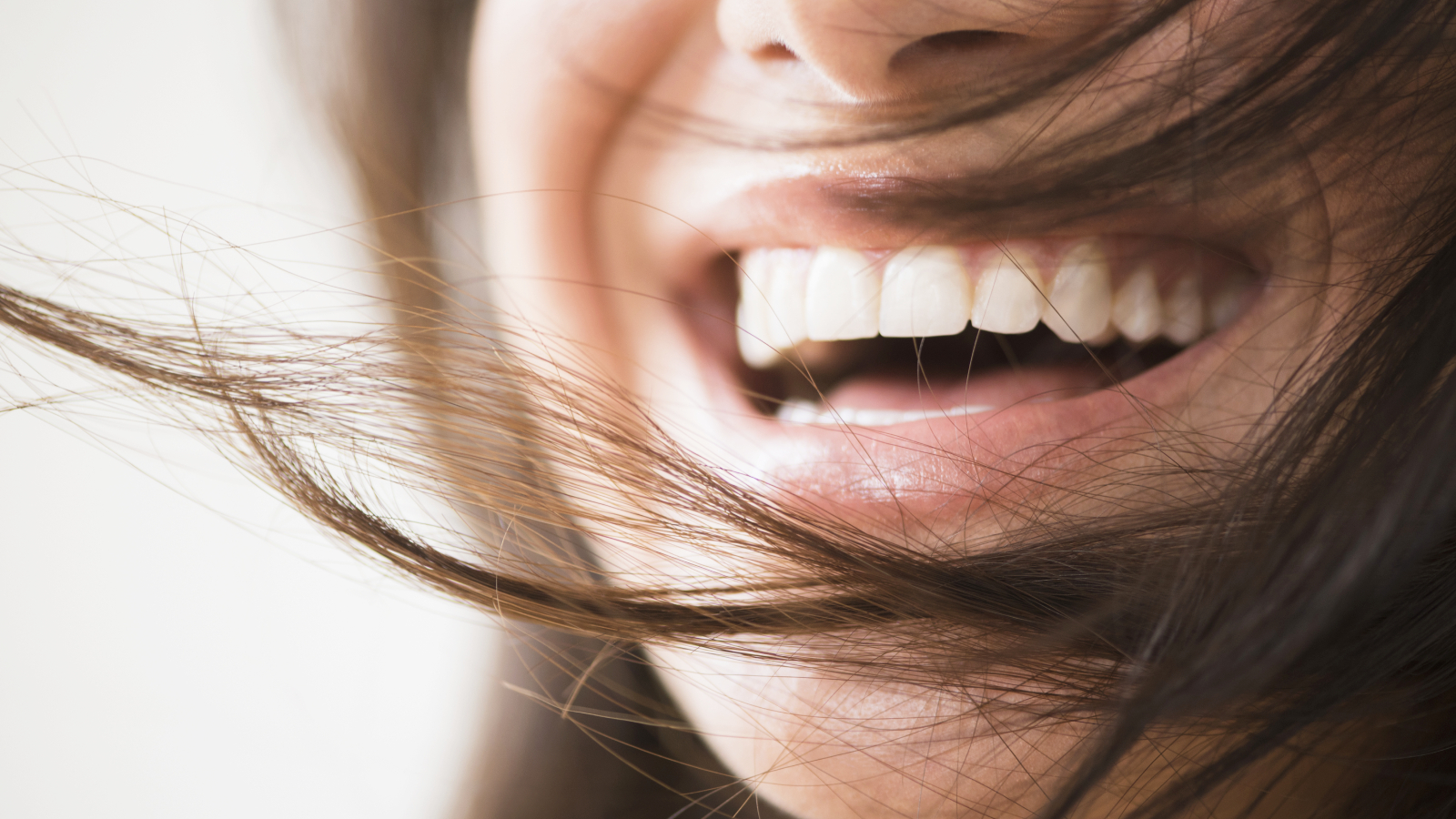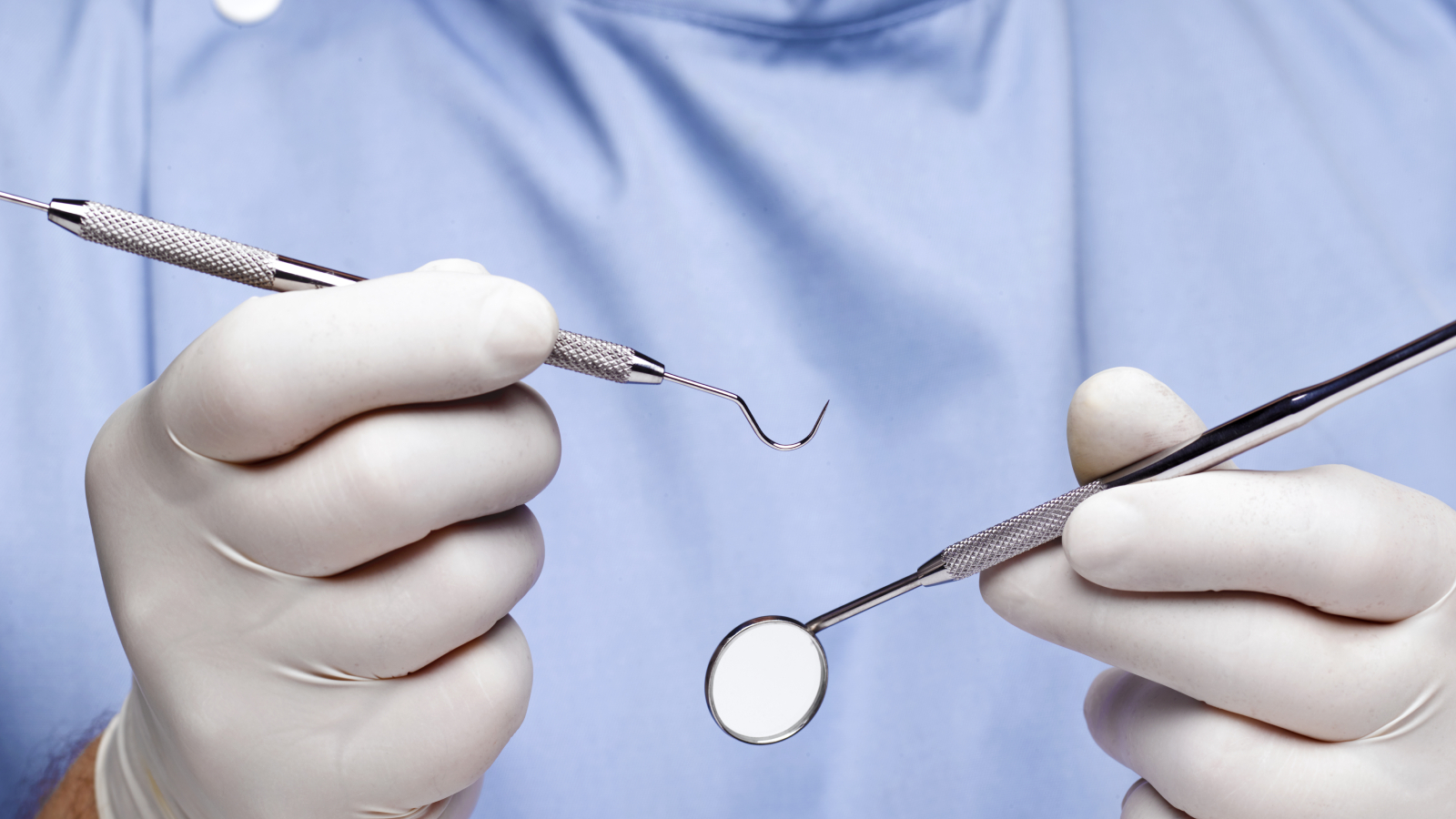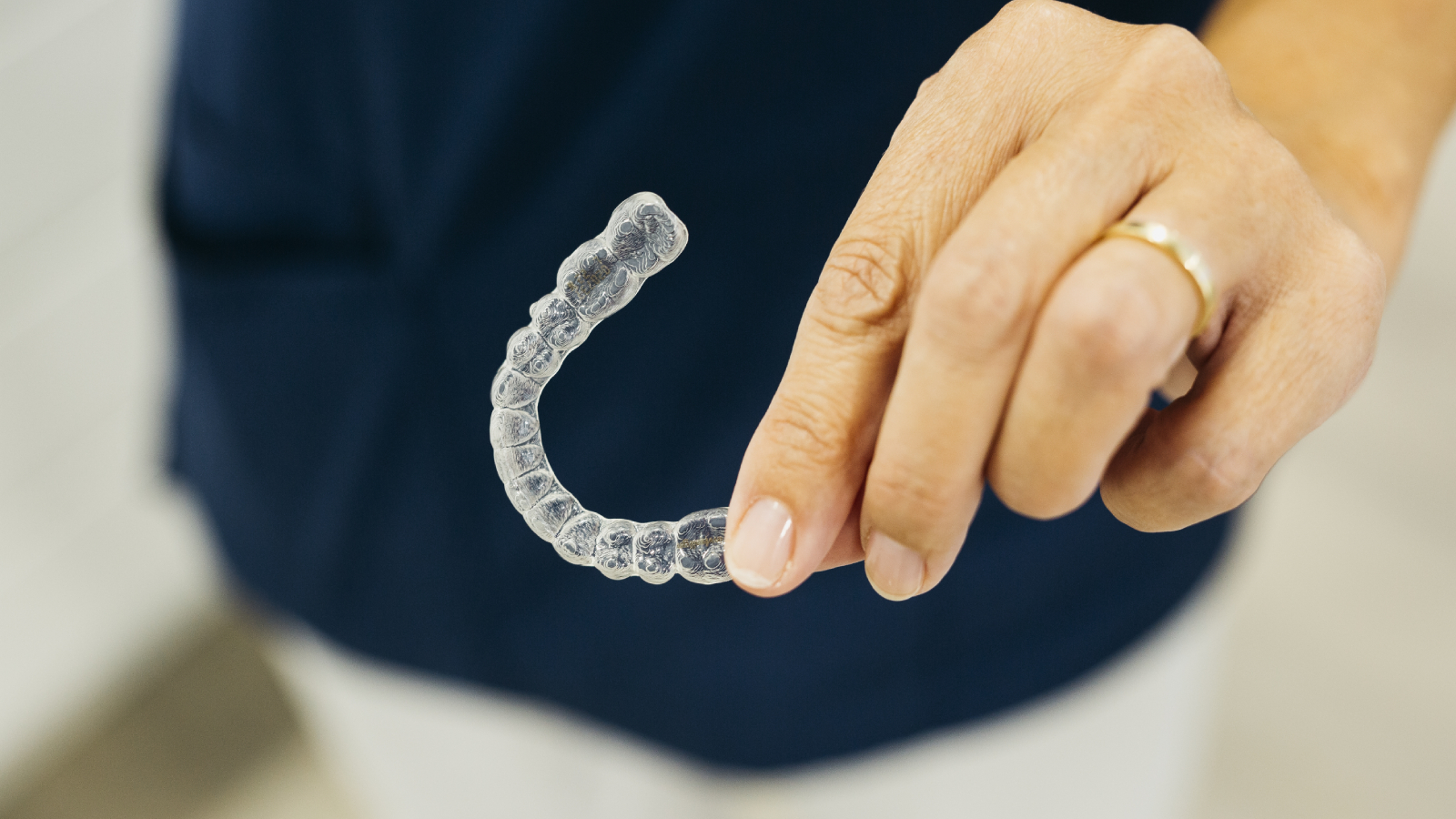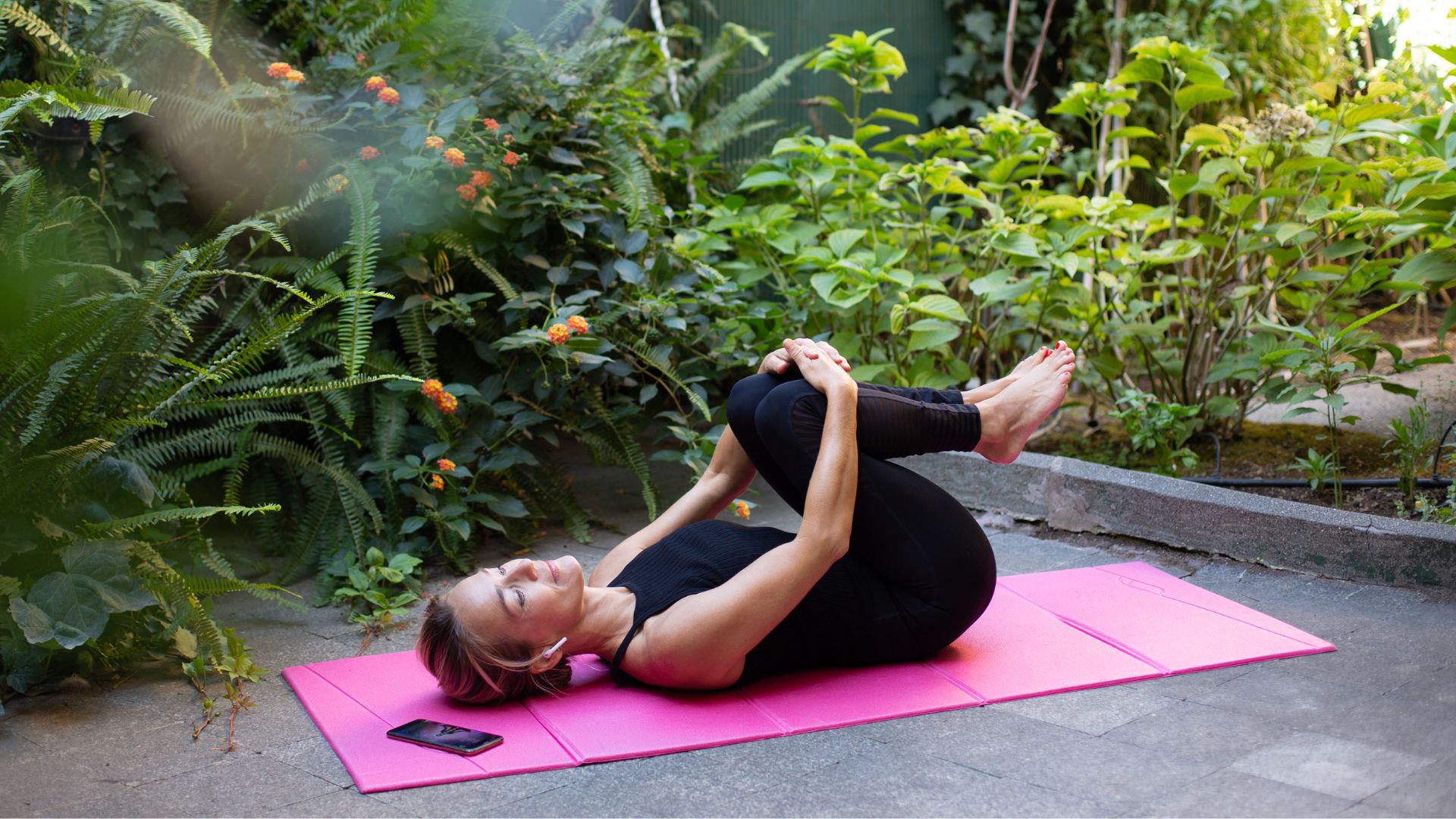Stop grinding your teeth at night with the help of our dental experts
Grinding your teeth at night? Understand the reasons why with our guide to treating bruxism


If you're grinding your teeth at night, don’t worry, there are plenty of solutions to help you kick the habit. Medically known as bruxism, teeth grinding can be caused by several factors, including stress and anxiety, but sometimes caffeine, medication, and even sleep apnea (temporary lapses in breathing that can cause sleep disturbances) can also affect it.
Teeth grinding can happen despite the investments we make in our oral health. Even if we're brushing our teeth correctly, using the best electric toothbrush, and investing in good-quality toothpaste, teeth grinding often takes place while we sleep, with most people unaware they even do it. It's only when symptoms such as a headache, a sore jaw, and eroded teeth appear, (or an unhappy partner complains you're keeping them awake), that people visit their dentist and are diagnosed with bruxism. Ready to nip it in the bud? Our oral health experts are on hand to help.
Why might you be grinding your teeth at night?
Our brain decompresses what has happened during the day while we sleep. So, while you might be trying to switch off, your brain is doing important work while you rest. This, in part, is why teeth grinding takes place during the night.
"Although teeth grinding can happen at any point within the day or night, commonly, grinding takes place while you're sleeping, due to stimulated brain activity,” says Dr Mani Bhardwaj, cosmetic dentist at The Smile Studios Dental Group. "A side-effect of this activity does result in grinding of the teeth and other muscular spasms, something that can be commonly be seen in younger children. Other similar reasons for teeth grinding could be stress, drug misuse, or other neurological reasons which have resulted in elevated brain activity, causing the jaw to grind and other muscles to spasm."
- Stress—teeth grinding can be the body's way of coping with overwhelming periods. “Stress is a common culprit behind teeth grinding,” says Dr. Edmond Hewlett, Professor of the Section of Restorative Dentistry at the UCLA School of Dentistry. “And it can happen regardless of whether we're awake and aware (we sometimes notice this during the day, when we find ourselves clenching the teeth together) or asleep and unaware (usually active grinding, known as bruxism).”
- Changes in sleep patterns—research shows that fluctuating sleep patterns can be one of the reasons we grind our teeth at night. Sleep apnea is thought to play a big part, with medical professionals theorizing that as the airway becomes constricted, bruxism helps to open the mouth and lubricate the back of the throat.
- Medication—sometimes, teeth grinding can be a side effect caused by taking certain types of medication. According to the NHS, antidepressants have been linked to teeth grinding, so it's worth speaking to your doctor if this is something you're concerned about.
- Lifestyle factors—caffeine, smoking, and alcohol can also cause teeth to grind, as they disrupt our ability to fall into a deep sleep.
How to know if you’re grinding your teeth while you sleep
- Headaches—dull headaches upon waking can be a sign that you've spent the night grinding your teeth. Occasionally, this can develop into migraines if the grinding is severe enough.
- Sore jaw—the constant movement that comes with bruxism can aggravate the jaw muscles, meaning a tense, sore jaw can be another symptom.
- Visible erosion—if teeth grinding happens over a long period of time, it can wear down the enamel, meaning teeth may become eroded or even chipped in some circumstances.
- Your partner notices—many people discover that they suffer from teeth grinding after finding out from their bed companion, as the noise is sometimes quite audible.
- Sensitive teeth—as the grinding creates stress on the teeth, those suffering from bruxism find that their teeth become increasingly sensitive to hot and cold foods.
How to stop grinding teeth at night
While we advise seeing a professional in order to help prevent teeth grinding at night, there are other measures you can take to combat the issue, including reducing stress levels, cutting back on stimulants, and learning how to sleep better and deeper with methods like breathing techniques for anxiety and sleep aids that will help you drift off more easily.
2. Seek help from your dentist

If you think you might be grinding your teeth when sleeping, then your first point of call should be your dentist.
"Your dental practitioner should assess the wear on your teeth before you take any action," says Dr Bhardwaj. "They can help you understand why it might be happening and prevent it by using appliances such as occlusal splints. Patients who have left the grinding for many years may find that they need dental work on their teeth. If left for too long, they may even need multiple restorations to be placed on the teeth, such as crowns and even possibly teeth removal if the grinding has worn the tooth past a restorable state."
Sign up for the woman&home newsletter
Sign up to our free daily email for the latest royal and entertainment news, interesting opinion, expert advice on styling and beauty trends, and no-nonsense guides to the health and wellness questions you want answered.
2. Reduce stress
With work, parenting, and social demands, living a stress-free life is often easier said than done, but preventing stress from becoming overwhelming can help you combat teeth grinding. Creating a wind-down routine before bed to help your brain decompress outside of the place you sleep, can be an effective way of ensuring that you fall into a deep sleep, which makes it difficult for teeth grinding to happen.
"Relieving stress by any means during the day and going to bed with a clear stress-free head, will naturally result in a deep sleep," says Dr Bhardwaj. "Deep sleep usually means people are less likely to start teeth grinding, so achieving deep R.E.M sleep (rapid eye movement sleep) is really quite crucial."
Ways you can reduce stress in your day-to-day include exercise and utilizing stress-easing techniques, such as breathwork, meditation, and gratitude journaling. You could also try some guided meditations for sleep to relax at night.
3. Cut back on stimulants
As much as we love our morning coffee, caffeine is considered a possible culprit behind teeth grinding, as it can impact the amount of deep sleep we get. "Cut back on caffeinated drinks and food that contains caffeine to eliminate it from the equation," advises Dr Bhardwaj. Alcohol can also intensify teeth grinding as it disrupts sleep, so try to avoid having an evening tipple before bed when you can.
4. Use relaxation techniques
"There are several methods available for managing bruxism and its consequences," says Alastair Fry, Consultant Oral Surgeon at London Bridge Hospital (part of HCA UK). "These include relaxation techniques and mindfulness apps, such as Headspace or another method that can be used to combat teeth grinding at night is biofeedback." Biofeedback is essentially a headband that you wear while you're sleeping that helps to monitor muscle tension. It can also advise you on stretches you can do for your jaw, neck, and head. Studies show that biofeedback is a very effective way of combating bruxism, but always seek advice from your dentist first before opting for this treatment.
5. Buy a mouthguard or splint

Purchasing a mouthguard or a splint can be great for those suffering from bruxism. "Your dentist can provide a custom-fitted nightguard appliance which is worn during sleep to protect teeth from damage caused by grinding," says Dr Hewlett. Not only do these work to reduce the impact of teeth grinding on the teeth, but they can also ease tension and minimize the grinding noise, as Alastair explains: "Splints or mouth guards can be made to fit over the teeth to wear at night. These protect the teeth and also help to take the strain off the jaw joint."
Mouthguards are similar to what you would wear in physical contact sports, such as American football, whereas a splint is made from harder plastic that fits over your upper or lower teeth. It's worth speaking to your dentist to find which one would work best for you. The best mouthguards and splints are the ones that are custom-fitted, but you can buy devices online that can be trimmed down to fit your mouth.
woman&home thanks Dr. Edmond Hewlett, Professor of the Section of Restorative Dentistry at the UCLA School of Dentistry, and Dr Mani Bhardwaj, Cosmetic Dentist at The Smile Studios Dental Group and Alastair Fry, Consultant Oral Surgeon at London Bridge Hospital (part of HCA UK).
With five years of experience working across print and digital publications, Stacey is a journalist who specializes in writing about the latest developments in health and wellbeing. She has also previously written for Women’s Health, Get The Gloss, Fit & Well, Stylist, and Natural Health magazine, covering current health trends and interviewing leading figures in the wellness space.
When she’s not talking to health experts, you can probably find her hiking somewhere in the Welsh countryside or near the coast. Her favorite two ways to switch off are a Pilates class and a glass of wine with a home-cooked meal.
-
 Tight hips? These 4 stretches can help improve your mobility and feel amazing
Tight hips? These 4 stretches can help improve your mobility and feel amazingStretches for tight hips mean better hip mobility and flexibility. It might not sound like a lot, but these two small adjustments help make daily life easier
By Grace Walsh
-
 The most decade defining royal moments of the 80s - from Princess Diana fever, royal births and Queen Elizabeth II's historic firsts
The most decade defining royal moments of the 80s - from Princess Diana fever, royal births and Queen Elizabeth II's historic firstsA lot happened in the 80s, and we don't just mean leg warmers and the rise of Madonna
By Jack Slater